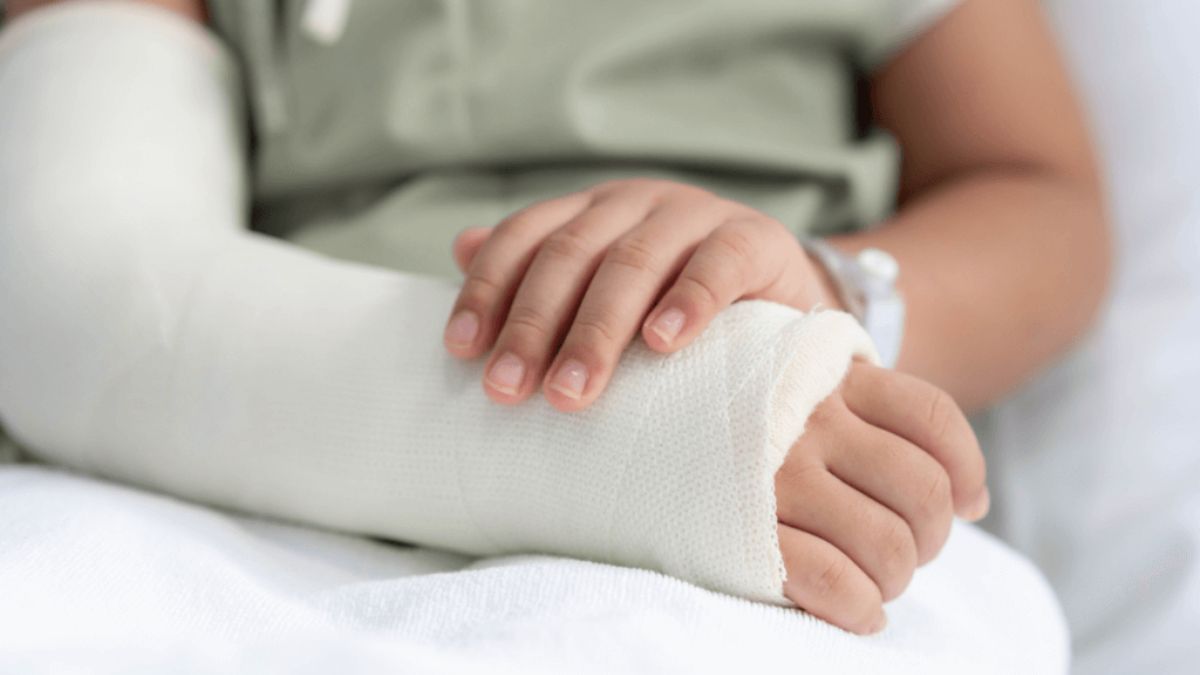HEALTH
Revolutionizing Medicine: The Role of Clinical Trials

Clinical trials are essential elements of medical research that drive healthcare innovations that have the potential to revolutionize the way diseases are treated. These trials are crucial for testing new drugs and therapies, providing the empirical evidence to ensure safety and efficacy before widespread medical application. Understanding the pros and cons of taking part in clinical trial initiatives enables potential participants to make informed decisions, ultimately enhancing the credibility and impact of these research studies.
Participating in clinical trials offers patients early access to groundbreaking treatments unavailable to the public. It also allows individuals to contribute to vital scientific research that may impact their health outcomes and the treatment protocols administered to others globally. By establishing clear protocols and ethical standards, clinical trials significantly prioritize participant safety and advance human health research.
The Foundation of Clinical Trials
Clinical trials are meticulously designed research studies involving human volunteers. Their primary purpose is to explore specific health questions and evaluate new medical interventions. These trials are conducted in sequential phases, each serving a distinct function. Researchers assess a new treatment’s safety and optimal dosage in Phase I. Phase II, when the emphasis switches to evaluating the treatment’s effectiveness and adverse effects on a broader cohort, builds upon the foundations laid by this Phase.
Phase III trials involve extensive testing on diverse populations to confirm the treatment’s benefits and monitor adverse reactions. Finally, Phase IV, or post-marketing studies, gather information about the treatment’s long-term effectiveness and impact on public health. By rigorously following these phases, researchers can systematically vet potential treatments, ensuring they meet the high standards necessary for clinical use.
Why People Participate in Clinical Trials
The motivations behind participating in clinical trials are wide-ranging and often deeply personal. Many volunteers wish to access new, potentially life-changing treatments, especially when conventional therapies have failed. Others are driven by altruism, aiming to contribute to scientific progress and medical knowledge that could benefit countless individuals.
Trial participants often receive state-of-the-art medical attention and monitoring from leading professionals, offering a level of care that is both intensive and supportive. This environment enhances their health outcomes and contributes meaningfully to the broader field of medical research.
Ensuring Safety in Clinical Trials
Participant safety is a paramount concern in clinical trials. Stringent regulatory guidelines ensure trials are conducted under rigorous ethical and safety standards. For instance, Institutional Review Boards (IRBs) play a vital role by reviewing and approving trial protocols, ensuring that they comply with ethical norms and protect the rights of participants.
Informed consent is another fundamental aspect. Before agreeing to participate, participants are thoroughly informed about the trial objectives, potential risks, and benefits. This transparency builds trust and ensures that participants are fully aware of the trial dynamics, aligning expectations with the realities of experimental research.
Benefits of Clinical Trials for Participants
Participants in clinical trials are often among the first to access innovative treatments that may not be publicly available. This access can be particularly appealing for those with rare or hard-to-treat conditions, providing hope. Furthermore, participants are under the care of research teams who closely monitor their health, ensuring they receive comprehensive medical attention.
Beyond personal health benefits, participants contribute to a greater scientific understanding that drives new medical innovations. Their involvement thus supports the development of new treatment standards, ultimately improving healthcare delivery for patients worldwide.
Challenges Faced by Clinical Trials
While clinical trials are instrumental in healthcare advancement, they face significant challenges. Recruitment remains a major hurdle, with difficulties often arising from the need to enroll diverse and representative populations. Addressing this requires robust community engagement strategies and eliminating barriers that deter participation, especially among minority groups.
Additionally, the high costs and lengthy durations associated with trial execution present financial and logistical challenges. Researchers are now utilizing digital platforms and decentralized trial models to streamline processes and enhance accessibility, ensuring that trials can be conducted efficiently and affordably.
Impact of Clinical Trials on Global Health
Clinical trials profoundly impact global health, leading to medical breakthroughs that redefine treatment paradigms. Successful trials have spearheaded innovations that provide new solutions to longstanding health issues. For instance, the development of mRNA vaccines during recent global health crises is attributed to years of dedicated clinical research.
These innovations underscore the essential role that clinical trials play in translating theoretical research into therapeutic reality, offering hope and new possibilities to individuals worldwide.
Conclusion
Clinical trials are essential for expanding our understanding of medicine and enhancing patient care. They are a critical link between laboratory research and practical, real-world applications, transforming theoretical findings into tangible health solutions. Participation in these trials is essential, as it provides the necessary data and insights that drive the development of innovative treatments and therapies.
Every clinical study adheres to a carefully thought-out protocol that guarantees the application of exacting scientific techniques. It involves ensuring that any new intervention is safe and effective for patient use and assessing the safety and effectiveness of novel medications, medical equipment, or therapeutic approaches. The contributions of diverse patient populations in these trials are key; their experiences and outcomes help researchers understand how different demographics respond to treatments, ultimately informing the practice of personalized medicine.
Moreover, the ethical considerations that underpin clinical trials are crucial. Researchers are committed to the principles of informed consent, ensuring that participants understand the trial’s purpose, procedures, risks, and potential benefits before agreeing to participate. This commitment protects participants and fosters trust in the research process.
The impact of clinical trials extends far beyond the individuals involved; they lay the groundwork for groundbreaking medical breakthroughs that can change lives on a broader scale. By supporting and actively participating in clinical trials, we contribute to a collective effort that shapes the future of healthcare, unlocking new possibilities for effective treatments and even life-saving interventions. As we continue to innovate through clinical research, we move closer to a future where advanced medical solutions are accessible to all.
HEALTH
Why Martial Arts Sydney Is More Than Just Self-Defence

Do you want to know what makes martial arts different from other physical activities? When you train in martial arts Sydney, you learn skills that help you defend yourself while building mental strength development in practical ways that improve your daily life.
What Martial Arts Classes Really Teach You
Many people join martial arts, thinking they’ll only learn how to fight. The reality? Martial Arts training reshapes your body and mind in ways regular gym workouts don’t.
How You Build Toughness Through Training
Martial arts classes put you in challenging situations on purpose. You learn to handle pressure, solve problems, and develop grit that serves you everywhere.
Regularly facing difficulties with supportive classmates makes you calmer during stressful moments. This calm helps with work deadlines, traffic jams, and family emergencies alike.
Can Martial Arts Actually Improve Your Concentration?
Our attention gets pulled in countless directions every day. Martial arts Sydney training counteracts this by requiring total focus during practice. You don’t just pay attention briefly – you train your mind to lock in completely.
Many parents are told by teachers since their child started classes, they sit still and listen better in class. The clear instructions and immediate feedback in martial arts make focus a trainable skill, not just something you either have or don’t.
Why You’ll Make Real Friends
Academies that teach martial arts Sydney create communities, unlike typical gyms. People who sweat, struggle, and succeed together form genuine bonds.
Your training partners quickly become people who understand your challenges both in and out of class. Many students initially join for fitness but stay for years because of these connections – something particularly valuable in a busy city where meaningful interaction often feels rare.
Physical Changes You Might Not Expect
Regular exercise makes anyone fitter, but training in martial arts Sydney develops specific physical abilities most workout routines miss entirely.
How Your Strength Changes
Unlike machines that isolate muscles, martial arts movements engage your entire body. You develop practical strength that helps with everything from carrying groceries to playing with kids.
Furthermore, martial arts classes teach you to use tension only when needed while relaxing elsewhere. This efficiency helps office workers with chronic tension and weekend athletes alike.
Why Your Coordination Improves
Through repeated practice of precise movements, you rewire your brain’s movement patterns. This improved body awareness leads to better balance, posture, and overall movement quality.
Adults who always considered themselves “uncoordinated” often discover this quality isn’t fixed – it can be developed. The changes happen gradually but add up to noticeable improvements in how comfortably you move through daily life.
How To Choose A Good Martial Arts Sydney Academy
With dozens of options across Sydney, how do you find a school that teaches these deeper skills rather than just physical techniques?
Look at how instructors interact with students. Do they explain the “why” behind movements? Do they address the mental aspects of training? Good schools emphasize character alongside technique.
Check if classes include students of different abilities training together respectfully. The best academies for martial arts Sydney maintain high standards while adjusting teaching methods for individual needs.
Why Start Martial Arts Now
Martial arts training gives you practical self-defence skills while developing mental toughness, focus, and community connections. These benefits help in every area of your life.
Are you ready to see these changes yourself? Visit a local martial arts Sydney academy this week. Watch a class. Talk to students. Find training that fits your goals and schedule – your future self will thank you for taking this important first step.
HEALTH
Skincare for Sensitive Skin: Gentle Solutions for a Healthy, Glowing Complexion

Does your face turn bright red with new creams? Do you experience burning sensations, itchy patches, and that horrible tight feeling? These are classic signs of sensitive skin. Finding proper skincare for sensitive skin can change everything and transform uncomfortable, reactive skin into a calm, balanced complexion.
What Exactly Is Sensitive Skin?
Sensitive skin isn’t just being fussy about products. It’s a real condition. Dermatologists explain that sensitive skin reacts strongly because its protective barrier doesn’t function properly. This leads to inflammation, redness, dryness, and irritation. Cold weather, pollution, sunshine, and ingredients in regular skincare products can all trigger reactions.
The warning signs include:
- Stinging sensations after washing
- Redness that doesn’t fade, even hours later
- Persistent dry patches despite regular moisturising
- Areas that feel perpetually itchy and tight
- Visible broken capillaries on cheeks or nose
Why Most Shop-Bought Products Make Things Worse
Many people fall into the common trap of spending hundreds of dollars on fancy brands, where each one makes their skin more upset, as mainstream products often contain ingredients that sensitive skin hates:
- Various alcohols (particularly denatured)
- Synthetic fragrances (even when labelled “natural scents”)
- Chemical preservatives with complex names
- Exfoliating acids that prove too harsh
- Foaming agents like sodium lauryl sulphate
Consistent skincare for sensitive skin provides the stability these complexions desperately need.
Creating a Gentle Skincare Routine That Actually Works
Years of trial and error show that simplicity helps sensitive skin the most. You don’t need fifteen products – you need the right ones. Effective skincare for sensitive skin focuses on healing and protecting rather than harsh treatments that promise quick results.
Bin Your Harsh Cleanser
Your face wash matters enormously. Many cleansers strip the skin barrier daily. Better options include:
- pH-balanced formulas (around 5.5)
- Products without bubbles or foam
- Formulations with fewer than 10 ingredients
- Cream or oil textures rather than gel
Sort Out Your Moisture Barrier
Repairing a damaged skin barrier becomes essential for sensitive skin. Australian jojoba oil offers a remarkable solution. Unlike other oils, jojoba closely resembles human skin’s natural sebum. It’s actually a liquid wax ester that delivers:
- Natural vitamins A, D and E that nourish depleted skin
- Omega 6 and 9 fatty acids that strengthen the barrier
- Powerful antioxidants that fight environmental damage
- Deep hydration without clogging pores
Adding a few drops of jojoba to a plain moisturiser can transform skin health within weeks.
Soothing Skincare Ingredients That Calm Reactive Skin
Not all botanicals work for sensitive types (essential oils often cause problems), but these gems consistently help calm irritated skin:
- Australian jojoba as a non-negotiable staple
- Centella Asiatica extract (cica) for reducing redness
- Pure aloe vera for immediate soothing
- Colloidal oatmeal for intense calming
- Hyaluronic acid for moisture without irritation
- Niacinamide at 5% concentration for barrier repair
Finding the Best Products for Sensitive Skin
Labels can mislead. Look beyond marketing claims for:
- “Hypoallergenic” products (though manufacturers use this term freely)
- Truly fragrance-free options (not just masked scents)
- Ingredient lists where jojoba appears high up
- Items specifically created for eczema-prone or reactive skin
- Packaging that minimises contamination and oxidation
Your Sensitive Skin Deserves Better
Skincare for sensitive skin requires detective work because triggers differ from person to person. Some can’t tolerate vitamin C, while others use it without issues. But jojoba-based products consistently emerge as sensitive skin saviours.
Fed up with red, irritated skin? Start fresh with a stripped-back routine focusing on gentle cleansing and barrier repair with jojoba oil. Your mirror will soon reflect what you’ve wanted all along – calm, comfortable skin that feels like yours again.
HEALTH
Essential Considerations After a Personal Injury Incident

What to Do Immediately After an Incident
A personal injury incident can strike unexpectedly, leaving you feeling disoriented and vulnerable. In these crucial moments, your priority should be ensuring everyone’s safety, including yours. Begin by assessing the environment for hazards such as traffic, unstable structures, or exposed electrical elements. If necessary, quickly move to a safe location or, if incapacitated, signal for help.
Once safety has been established, it is essential to maintain a sense of calm. While this is challenging, keeping a clear mindset enables sound decisions. You may already consider the potential legal ramifications and wonder about personal injury law during this time. This understanding is crucial as it informs how you handle the initial stages after an injury.
Understanding Your Rights
Understanding your rights following a personal injury can be a source of empowerment. Individuals affected by such incidents frequently encounter many decisions, ranging from medical care to possible legal recourse. Typically, victims have the right to seek compensation for their injuries, which may encompass physical damage, emotional suffering, and financial setbacks, including lost wages or medical expenses. Engaging a personal injury lawyer can facilitate obtaining the compensation you are entitled to, as they can assist in navigating the legal complexities on your behalf. Having a well-informed strategy can significantly impact the outcome of any legal matter. To enhance your understanding, explore comprehensive resources that explain your legal rights as an injury victim.
Gathering Necessary Evidence
The strength of your compensation claim hinges significantly on the evidence gathered at the scene. Documenting the scene might seem challenging in the chaotic aftermath of an accident, but it is a vital step. Take clear photographs from multiple angles, capturing details like road conditions or visible injuries.
Should witnesses be available, collect their contact details and courteously request their event description. Written statements or voice recordings are invaluable. Secure any video footage from nearby cameras, such as traffic or security cameras, which could provide an unbiased account of the incident.
Seeking Medical Attention
Medical attention should be sought immediately after ensuring safety, even if injuries appear to be minor. Prompt medical evaluations are necessary for your health and serve as critical evidence. Minor aches or bruises indicate underlying injuries that could have been left unchecked.
A detailed medical report is an official record of your injuries and is often crucial when filing compensation claims. For instance, understanding the importance of medical procedures like X-rays can better illustrate how injuries are documented and assessed. Skipping this step can lead to complications in your recovery and legal proceedings.
Reporting the Incident
Once immediate concerns are managed, you should report the incident to the authorities. This includes contacting the police to file an official report. This report creates an official and unbiased account of what transpired, which lawyers and insurance companies often examine closely.
Be honest and concise in your account to the authorities. Provide them with the collected evidence, but refrain from speculating about fault or liability, as emotions and stress can colour your perspective.
Consulting a Professional
Personal injury cases often present complexities and involve nuanced details requiring expert guidance. Engaging a personal injury attorney can offer valuable clarity and assistance. A lawyer represents your interests and expertlymanoeuvress through the intricacies of the legal system on your behalf, guaranteeing that you obtain the compensation to which you are entitled.
Prepare for these consultations by gathering all relevant documents. Questions to discuss include your case’s strengths and the lawyer’s experience with similar claims. This relationship will be instrumental, so choose a lawyer whose communication style you find agreeable and who clearly outlines their strategy and expectations.
Navigating Insurance Claims
Filing an insurance claim demands patience and precision. Write down all correspondence with the insurance company and keep detailed records of every exchange. Respond promptly to communications and provide all requested documentation, including medical reports and evidence collected at the scene.
Insurance companies aim to minimize payouts, so be prepared to advocate for yourself firmly. Proactively engaging in the process with a straightforward narrative supported by evidence builds a compelling case for a fair settlement. Avoid rushing the process; thoroughness now can prevent complications later.
Staying Informed and Educated
Finally, education is an ongoing process that bolsters your readiness for personal injury incidents. Continuously familiarize yourself with personal injury law as it evolves with new precedents and legislative changes. This knowledge assists you in the immediate aftermath of an incident and prepares you for potential future scenarios.
Explore readings from reputable legal sources, attend workshops, or consult experts to enhance your understanding. Being well-informed isn’t just about being prepared—it’s about staying empowered in all legal and personal protection aspects.
-

 TECHNOLOGY7 months ago
TECHNOLOGY7 months agoAbout Technology From Axiumtechnet: Exploring the Beautiful Future
-

 TOPIC6 months ago
TOPIC6 months agoInvitation Printing: How to Create Perfect Invitations for Any Occasion
-

 TECHNOLOGY6 months ago
TECHNOLOGY6 months agoThe Rise of Hqpotner: Exploring Its Impact on the Blogging Community
-

 TECHNOLOGY7 months ago
TECHNOLOGY7 months agoAlpha Technologies Fxm350 Snmp Oid: Comprehensive Overview
-

 BUSINESS7 months ago
BUSINESS7 months agoGoogle Business Profile Kgmid Extractor: A Deep Dive
-

 HEALTH7 months ago
HEALTH7 months agoHarriet Goldfischer Providence Health: Ultimate Guide
-

 BUSINESS6 months ago
BUSINESS6 months ago36dview Photography Business Info: Your Ultimate Guide
-

 BUSINESS7 months ago
BUSINESS7 months agoDining Delights: 200 E Business Hwy 23 Walsco Tx
